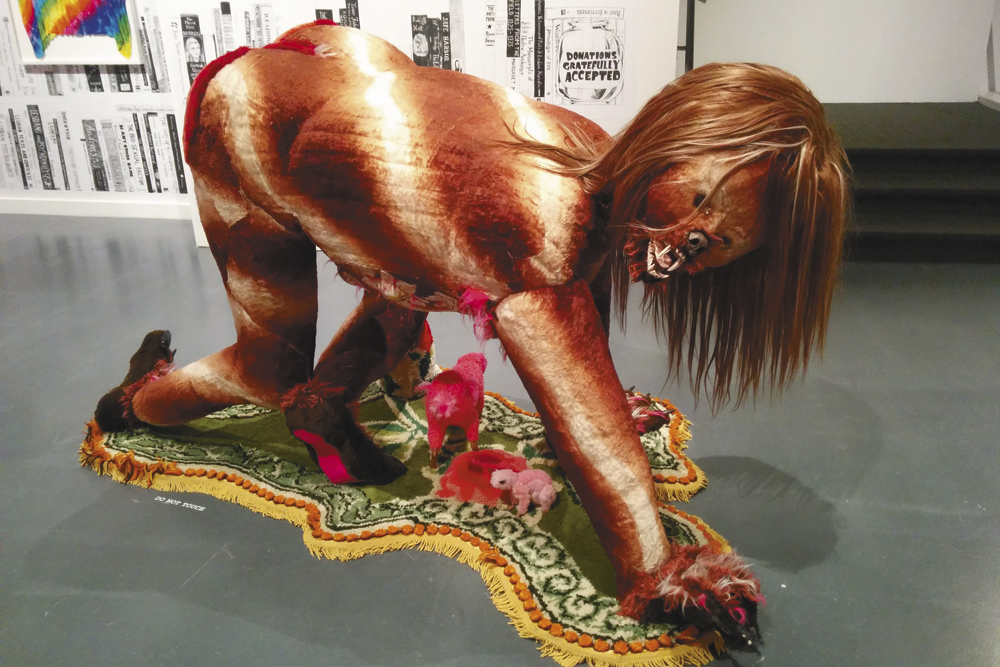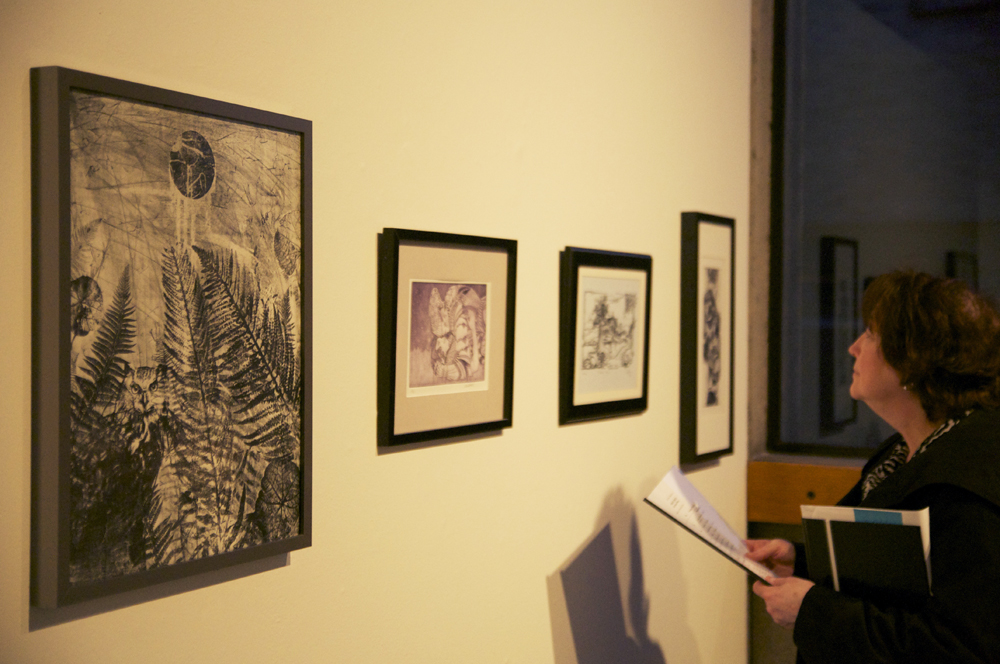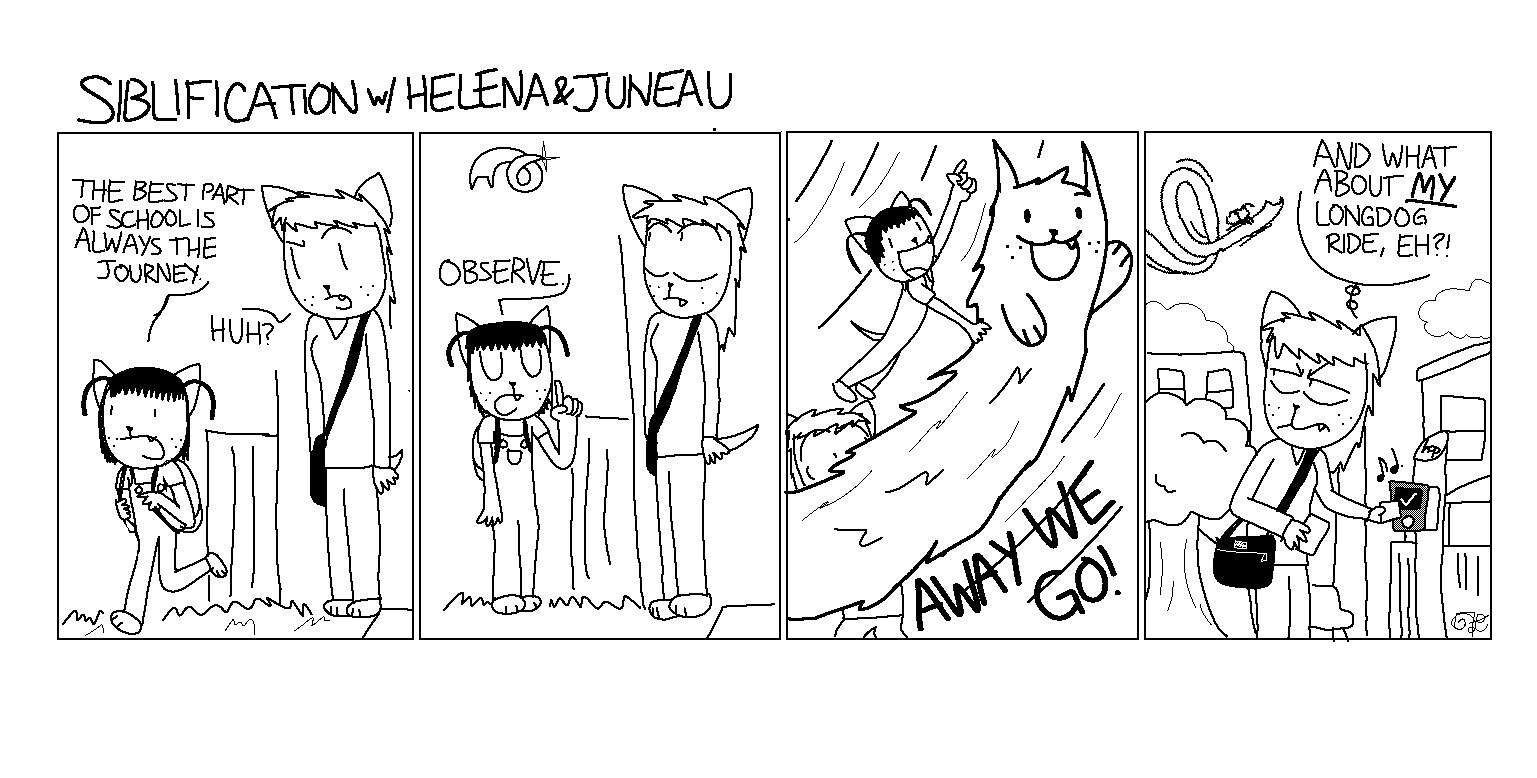Laura Kutner—founder of nonprofit organization Trash for Peace—gave a talk at Portland State about starting a sustainable nonprofit and followed up with a workshop on turning common household trash into art and functional goods.
Kutner’s talk focused on both the history of her own nonprofit and general advice for prospective leaders of new organizations. The workshop took a nonlinear format and saw attendees come and go throughout the afternoon. Both the talk and the workshop took place in the Native American Student and Community Center on Nov. 13 from 10 a.m. to 4 p.m.
Trash for Peace started as a way for her to teach Americans lessons—like the importance of reducing and reusing waste—that she learned while working in the Peace Corps in Guatemala, according to Kutner.
“The best way to teach that is through hands-on learning,” Kutner said.
One point that Kutner made during her talk was that a nonprofit organization is ultimately still a business. According to her, nonprofits–like other businesses–do need to have a strategy for bringing in money.
“You are supposed to make money; you do have to support yourself and your team,” Kutner said. “But the purpose of that money that you’re making is to give back to the community.”
One of the high points of starting Trash for Peace was being surrounded by people who shared and believed in her mission and finding ways to collaborate and connect with them, Kutner added.
“I’m very, very grateful for the opportunity to be here,” Kutner said. “I loved being a student here throughout my whole life…being able to participate and contribute to places and institutions of learning is a real honor and very fun and exciting for me.”
Kevin Thomas is the cultural sustainability coordinator at PSU’s Student Sustainability Center. He has worked to host events throughout Social Sustainability Month and coordinated with Kutner to give her an opportunity to speak at the university.
Information from events like the trash workshop is later hosted online so people from universities across the country can learn from PSU, according to Thomas.
“We want to make sure that the quality of life on campus is as good as we can make it, and part of that is providing programming that addresses the social needs,” Thomas said. “And that’s what we do at Social Sustainability Month. And we are the only campus in the country that has a social sustainability month.”
There are three primary kinds of sustainability: environmental, economic and social sustainability, he added.
“Social [sustainability] is the least understood,” Thomas said. “Social is sometimes referred to as equity…we use social sustainability as the term here, and you don’t have real sustainability unless all three intersect.”
Kutner’s idea that new nonprofits may be best served by starting off by seeking small grants was a major takeaway from the event for Thomas, according to him.
“For people [who] want to do that, this will hopefully save them a lot of trial and error,” Thomas said.
Tahja Whitley was one of the PSU students who attended the workshop. The event provided a positive opportunity to relieve stress, according to her.
“I feel incredibly inspired,” Whitley said. “I’m graduating in December, and I’m an applied linguistics major, so my passion and my career is revitalizing my language, the Shawnee language…so to see somebody putting into motion something so important using trash to make usable things and to get things done is just personally inspiring because I’m going into needing to do that for myself.”
Ideas of social justice, equity and sustainability are inseparable, according to her.
“We’re not going to make it and we’re not going to grow and change and preserve our planet and our cultures if we don’t find more sustainable ways to be,” Whitley said.
The format of the trash workshop, where students could come and go as they pleased, was a good idea for students who might have busy schedules, she added.
“Generally, I wish there were more events like this,” Whitley said.






